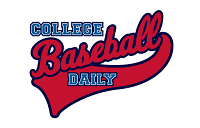 ROSEMONT, Ill. – Big Ten faculty, administrators and student-athlete representatives met this week to further discuss the importance of keeping education central to the mission of intercollegiate athletics.
ROSEMONT, Ill. – Big Ten faculty, administrators and student-athlete representatives met this week to further discuss the importance of keeping education central to the mission of intercollegiate athletics.
The conference unanimously decided it would be important at this juncture to reach out to a diverse group of thought leaders in an effort to obtain as much feedback as possible to a number of important areas impacting academics on campus. Those areas include the potential establishment of a year of readiness for all sports—or select sports; student-athlete time demands; playing seasons; initial eligibility requirements; and other areas impacting academics on college campuses across the country. Knowing that matters of such impact would never be adopted unilaterally by a single conference or institution, it is important to the conference to devise a strategy and timeline that would encourage, and allow the conference to obtain, input from all.
“While we are comfortable generating multiple ideas about an ‘education first’ approach to intercollegiate athletics in the twenty-first century, we won’t go it alone on any of these matters,” said Big Ten Commissioner James E. Delany. “We look forward to working with our colleagues in the NCAA Division I governance structure, and to exploring a broad exchange of ideas from both inside and outside of intercollegiate athletics.”
It is the Big Ten Conference’s hope that reaching out to others in advance of the 2016 NCAA National Convention will allow those in attendance at the convention to engage in a more meaningful discussion informed by both the student-athlete welfare issues scheduled to be addressed at the convention, and the input provided by thought leaders around the country regarding issues more directly impacting academics.
